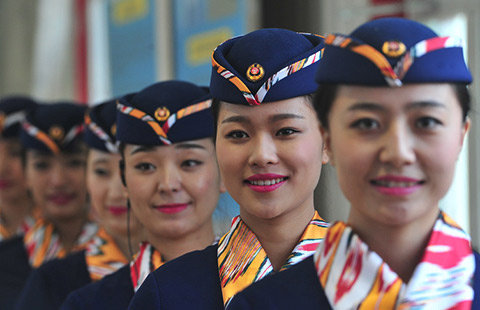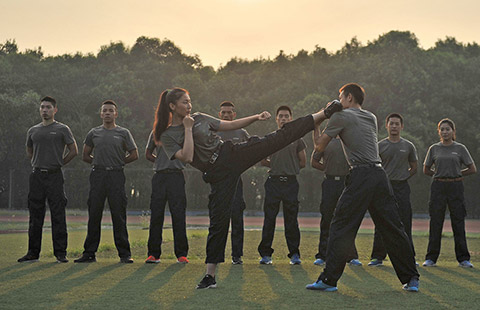Russia, China should cooperate within G20 to tackle challenges
(Xinhua) Updated: 2016-08-23 13:40MOSCOW - With common positions on many international issues, Russia and China should work together within the G20 framework to secure a new international financial and economic order - a priority among issues of common concern, a Russian expert has said.
Russia and China should join efforts to first upgrade the international financial and economic system, Andrey Kortunov, director general of the Russian International Affairs Council, a Moscow-based foreign policy think tank close to the Russian Foreign Ministry, told Xinhua.
He stressed the need for such a new global order, a topic top on the agenda of the 2016 G20 Summit to be held on September 4-5 in Hangzhou, East China.
"The longer those reforms are postponed, the higher the risk of new crises and instability is in the world economy," he said.
In this context, Russia welcomes China's initiative to create new financial and economic institutions, such as the Asian Infrastructure Investment Bank (AIIB) that is expected to help set up new investment mechanisms and financial management models.
Russia will be an active participant in such initiatives, he said.
The G20 came into being amid a global financial crisis that highlighted the inefficiency of the G8 format and the need for "a more representative and more democratic mechanism, including China, India and other non-Western states," the Russian expert noted.
Kortunov believes the partnership between Russia and China within the G20 will help tackle challenges where a political will is present.
"If today Beijing and Moscow offer their concept of stability to the international community, it is not just empty words, but proposals based on many successful experiences," he said.
The Russian expert said Moscow and Beijing have to work with Washington as with "a complex, and sometimes unpredictable partner," without which it would be impossible to address many international issues.
In his opinion, after unsuccessful attempts to build a unipolar world, the United States is now forced to revise its ambitions, though reluctant to abandon its claims to global leadership.
As a result, he said, the United States has displayed inconsistency and a gap between rhetoric and practice in foreign policies.
"Both China and Russia should consistently seek common ground with Washington, and avoid crises without making concessions on matters of principle," Kortunov suggested.
- G20 Hangzhou summit to give further push to intl issues: City of London official
- China vows to hold carbon-neutral G20
- G20 summit to facilitate innovation to solve global problems, says Japanese expert
- Emerging economies hope to get economic boost from G20 summit
- Suggestions and best wishes to Hangzhou G20: Foreign scholars
- Daily life in China's Hangzhou
- I am in Hangzhou: Food and beverage manager Raj
- I am in Hangzhou: Artist Munro
- Animation copyright fair in Guangdong seals deals worth $520m
- I am in Hangzhou: Medical student Tim
- China ceases anti-dumping duties on Japan, EU steel exports
- I am in Hangzhou: Designer Rachel
- China becomes Kyrgyzstan's second largest investor

















